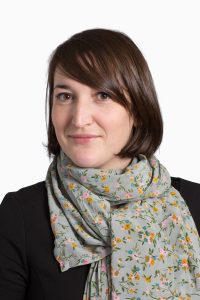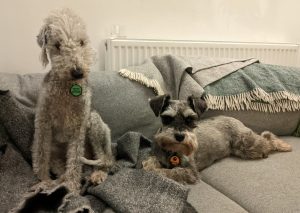 We spoke to Morag Henderson, Director of Next Steps, about why this study is so important.
We spoke to Morag Henderson, Director of Next Steps, about why this study is so important.
There are so many things about Next Steps that make it special, not just to me, but to the whole scientific community.
When I was a PhD student, my main research interest was educational inequalities – that is, who does well at school and who faces some challenges. Next Steps was perfect for answering the questions I was interested in because it first started when you were teenagers and focused on educational attainment and how people move from school into work.
“You are from an important generation that has faced many social and political changes… This is why it’s so important to compare your experiences and choices to those of other generations.”
As you have grown up, the study has changed and we now ask you about many different aspects of your lives, including wellbeing, relationships and earnings. My research interests have changed along with this.
You are from an important generation that has faced many social and political changes. For example, you grew up in a period of rapid technological change, faced some of the highest university tuition fees and many of you entered the labour market during the Great Recession. This is why it’s so important to compare your experiences and choices to those of other generations.
There are so many to mention. The research has helped shape so many important discussions about school policy, higher education policy and social mobility.
But for me, I think it’s the research into how much parents’ educational experience influences their children’s access to university in England. The research has shown that parents’ education has an impact not only on whether their children go to university at all, but on which institutions they study at – and even the subjects they choose.
We can even see some ‘effect’ of parental education into people’s working lives, as can be seen in this film:
I am usually up at 6am and the first thing I do is walk the dogs (Agnes and Gracie). I check my emails over breakfast and then take the train to central London. There I meet colleagues from the Centre for Longitudinal Studies, where Next Steps is based.

Morag’s dogs Agnes and Gracie.
Among other things, we’ll discuss our plans for sharing the latest data from the study with researchers around the world, our next survey with you, as well as current research we’re working on using Next Steps.
“I love my job as it captures so many things I am interested in: people’s lives and experiences, and using data to find patterns that might help answer important questions.”
I grab lunch from one of the nearby coffee shops and then either do some data analysis or writing, or maybe meet with my students to discuss their work. After that I go home and walk the dogs, then dinner and very early bedtime.
I love my job as it captures so many things I am interested in: people’s lives and experiences, and using data to find patterns that might help answer important questions about the world. I also love working with students to teach them sociological theory, how to analyse data and new research techniques. No day is the same!
We hope to come back to you in your late thirties to see how you’re getting on. By this age, quite a lot may have changed for you. We’ll ask about your outlook, your job, your health and how satisfied you are with life, among other things.
First, South African rugby player Siya Kolisi, I am a massive rugby fan and Kolisi exemplifies professionalism in the sport.
“I would be interested in what Stormzy has to say about his music, but also his scholarship scheme at the University of Cambridge.”
I think journalist Kirsty Wark would be an interesting person to discuss politics with and to hear about some of the tricky interviews she has had.
Meera Sodha is an amazing chef and writer whose food I love, maybe she could give me some tips!
I would be interested in what Stormzy has to say about his music, but also his scholarship scheme at the University of Cambridge.
I would also have to invite my all-time favourite cyclist Dan Martin, I would like to ask him what he thinks about on long bike rides.
Lastly, I would love to have dinner with a Next Steps study member! Because of our strict rules around confidentiality, I don’t know any of you by name, but I may have met one of you already without knowing. It would be nice to chat in person about your lives and some of the things we don’t have time to explore in depth in our surveys.